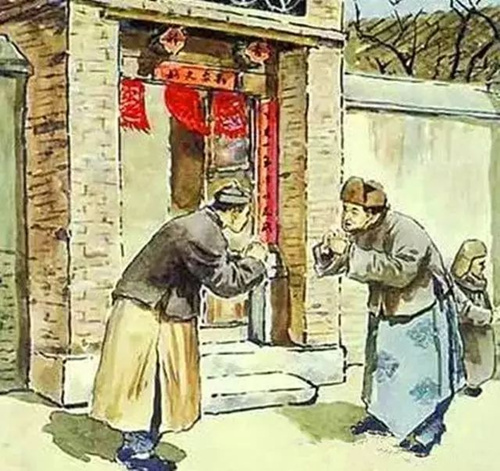Propriety helps establish more harmonious interpersonal relationships

A gesture for greeting each other in traditional Chinese etiquette Photo: FILE
The International Academic Symposium on Studies of the Rites and Traditional Chinese Culture was recently held in Wuhan University. The symposium discussed studies on the literature of li, a central concept from Confucian philosophy that can be translated as “the rites” or as “propriety.” Also under discussion at the symposium were the relationship between the rites, music and state governance in ancient China, and the relationship between the practices of propriety and daily life in ancient China.
Ding Ding, a professor of history from Shandong Normal University, said that the stressing of propriety is a peculiarity of traditional Chinese culture, distinguishing it from Western culture.
Peng Lin, president of the Institute for Chinese Classics Studies at Tsinghua University, suggested that all humans experience happiness, anger, sadness and joy, and li serves to help people express these emotions in a way that follows proper rules. That is to say, the expression of these emotions should do no harm to others, and that is what corresponding rules are for. The core of the rites is “respect,” Peng said. We should respect other people, ourselves, our families, the society and the nation. This is the foundation of our being in this world.
Ding suggested that although the development of social productivity shocked and challenged the traditional culture of propriety a number of times, the propriety paradigm of traditional Chinese culture has maintained the integrity of its structure and function. One of the important reasons that ancient Chinese society has showed a consistently stable structure is that ancient Chinese society and its corresponding traditional culture have long followed the paradigm of li, Ding said.
For Chinese people, Peng said, the rites are a fundamental symbol of the movement from barbarism to civilization. Propriety is an instrument for cultivating oneself and educating others, and it is a form of reasonable constraint on humanity. Propriety is premised on the existence of other people, and one should take other people into consideration. Chinese people established a common system of values and behavior patterns during the long history of Chinese civilization, and the paradigm of li is the formalization of these systems and patterns, he said.
What elements in Chinese traditional propriety systems can be forged into common values and rules by means of communication and interpretation? In regard to this question, Guo Qiyong, president of the School of Chinese Classics at Wuhan University, said that order, temperance, communication and the principles of harmony are still valuable in today’s world, and even more valuable to dialogues between different civilizations. Constraining people’s behavior with a system of rules, thereby mediating conflicts and harmonizing interpersonal relationships, is the benefit of the system of li, Guo said.
Morality is at the core of traditional systems of propriety, and the practice of these virtues requires a person to have an awareness of responsibility and a kind heart that values mutual respect, Ding said. The key to fostering private virtues or public ethics in modern society is to highlight this awareness of responsibility and carry forward this ethical principle of respecting others.
Cao Jiandun, a professor of history from Henan University, suggested that the system of propriety contains both good and bad elements, and it is important to explore the valuable contents of this system with a critical attitude. The system of propriety upholds the idea that harmony is the most precious factor in handling interpersonal relationships, and it stresses cultivating one’s virtues and morality, Cao said. This demeanor is valuable when establishing new types of interpersonal relationships premised on mutual trust and cooperation and in maintaining the stability and unity of society.
Wu Fei, a professor of philosophy from Peking University, said that the most important mission of current studies on li is to academically explore the spirit of the rites and music civilization. The greatest significance of our current study is to reconsider the core spirit of China’s rites and music civilization so as to compare and start dialogues with Western culture, he said. In this way, he added, China’s modern civilization can be understood as being grounded in deeper meaning.
(edited by CHEN ALONG)

 PRINT
PRINT CLOSE
CLOSE